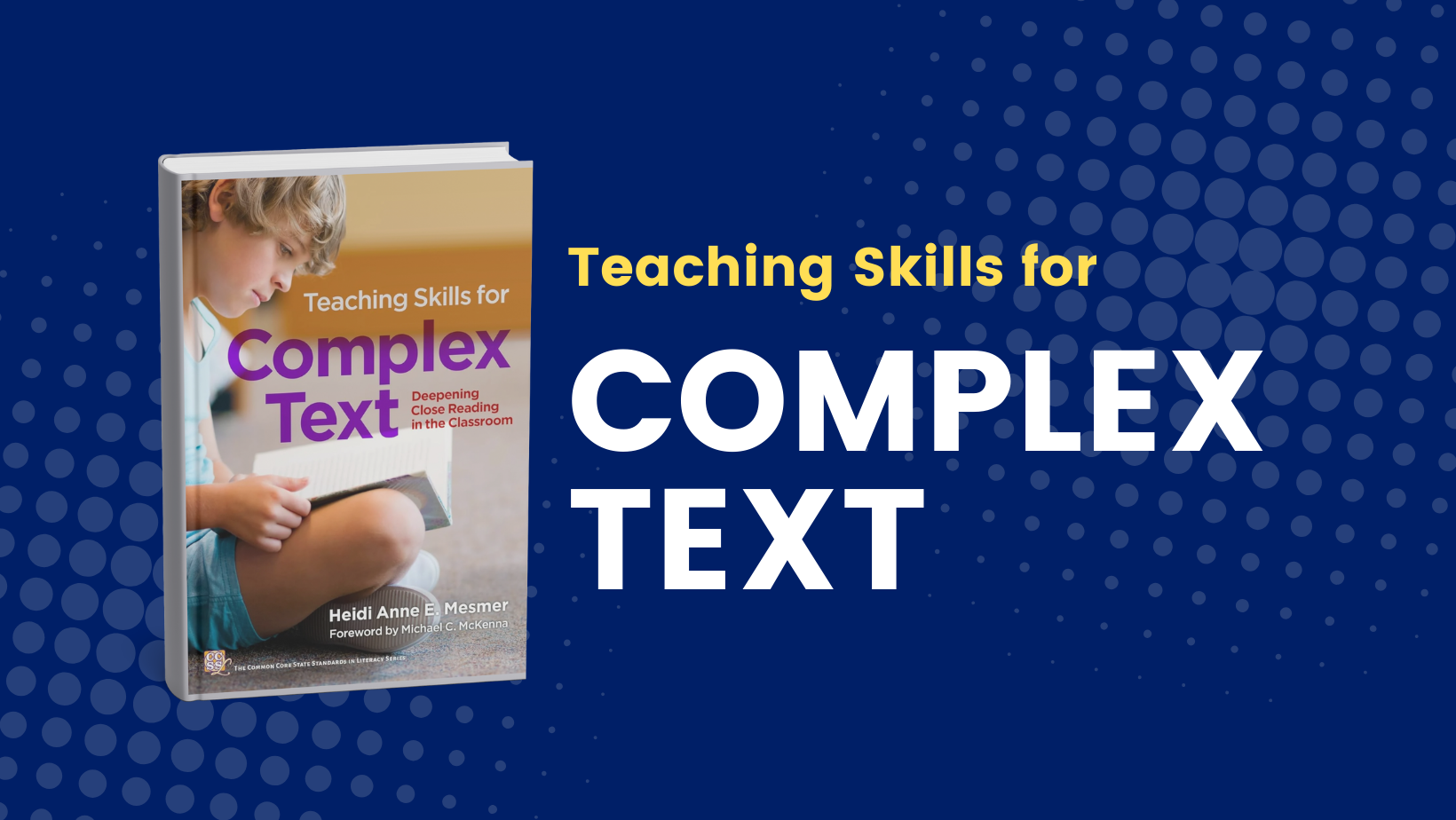Welcome to the ONlit blog!
Explore expert insights, practical teaching tips, and all the latest updates. We’ve got all you need to put structured literacy in practice!
Featured Articles

December 15, 2025
Sentence Combining: A Meaningful Way to Teach Language Conventions
ONlit
All Articles ()

December 15, 2025
Sentence Combining: A Meaningful Way to Teach Language Conventions
Sentence combining is an effective instructional approach for developing students’ understanding of sentence structure, syntax, and language conventions, which ultimately supports written communication and reading comprehension. Rather than teaching grammar as a set of isolated rules, sentence combining places language instruction within meaningful reading, writing, and oral communication contexts. This approach aligns directly with the Ontario Language Curriculum. In Appendix B: Language Conventions Continuum for
ONlit

November 25, 2025
Instruction Starts with Screening Data: Collaborative Problem-Solving in Action
With Ontario’s beginning-of-year screening window now complete, schools now have a clear, research-based picture of students’ early literacy skills. Screening tools provide dependable information about the foundational skills that matter most for reading development. These data help educators understand how instruction is landing across the class, which skills are well established, and which areas may need additional emphasis as the year begins. Screening is designed
ONlit

October 15, 2025
Introducing Learning Through Literacy: ONlit’s new integrated instruction series
We are thrilled to introduce ONlit’s newest project: the Learning Through Literacy resource series. These resources will give educators the tools to teach each grade level’s Ontario language expectations while also making meaningful connections to Canadian content in science, social studies, health, and the arts. For the very first time, the series will extend into Grade 9, marking an exciting expansion to support students and
ONlit

September 15, 2025
Organizing for Instruction
“How well I teach = How well they learn.” This idea can feel daunting, particularly when we reflect on students who have not yet learned everything we intended. At the same time, it presents a powerful opportunity. If effective teaching leads to effective learning, then our daily choices in the classroom have a direct impact on student success. A common challenge is the assumption that
ONlit

May 5, 2025
Fluency in Perspective
To support Ontario educators in the intermediate grades, ONlit has created two new resources to support fluency instruction. In the Fall of 2024, the Grade 8 Changemakers series was released. This resource included a collection of 14 passages about diverse changemakers. In addition to this, the Grade 7 Across the Curriculum series was released in April 2025. This resource includes a collection of 22 passages
ONlit

April 28, 2025
Understanding the Instructional Hierarchy: A Guide for Ontario Educators
As educators, our ultimate goal is to help students acquire, develop, and apply new skills with confidence and independence. One powerful tool to guide our instructional practice is the Instructional Hierarchy, a model of skill acquisition that has been researched over the past few decades. By understanding and applying this model, we can align our teaching strategies with students’ current levels of proficiency, making our
Marlene Perry

April 23, 2025
Highlights from ONlit’s Book Study on Next STEPS for Literacy Instruction
In August through October of 2024, ONlit hosted an eight-part book study for Ontario educators. Following Deb Glaser and Susan M. Smartt’s book, Next STEPS for Literacy Instruction: Connecting Assessments to Effective Interventions, Jordan Sloan facilitated this series in English and French. Each session focused on supporting educators to translate screening, diagnostic, and progress monitoring data to effective, evidence-based instruction. The book highlights foundations of
ONlit

April 22, 2025
The Importance of Early Reading Screening: Ensuring Success for All Students
Early reading screening is a crucial step in identifying and supporting students at risk for reading difficulties. The Ontario Ministry of Education has mandated reading screening in response to the Ontario Human Rights Commission (OHRC) Right to Read Report, released on February 28, 2022. This initiative is rooted in extensive research highlighting the necessity of early identification and intervention to ensure every student has the
Marlene Perry

April 9, 2025
Supporting Students with Complex Texts: Highlights from ONlit’s Book Study on Teaching Skills for Complex Text
This winter and spring, ONlit hosted a dynamic six-part book study designed specifically for Ontario educators teaching Grades 3–8. Centred on Dr. Heidi Anne Mesmer’s Teaching Skills for Complex Text, the series was facilitated by Nellie Caruso and Leigh Fettes. It offered educators a practical, curriculum-aligned opportunity to dive into some of the most important—but often overlooked—skills that help students become stronger readers. The revised
ONlit

April 5, 2025
Spotlight on Nellie Caruso: Championing Student Success in French Immersion
Nellie Caruso has been a French Immersion teacher from 1999 to 2015 with the York Region District School Board and since 2015 with the Toronto District School Board. At her day job and through ONlit, she has not only provided structured literacy instruction in French but has also been instrumental in spreading knowledge, and enhancing teacher capabilities within her school and beyond. In addition to
ONlit

March 27, 2025
Decodable Text vs. Leveled Readers: What Supports Early Reading Development?
When it comes to teaching children how to read, the type of text they are exposed to plays a crucial role in their development. Two widely used approaches—decodable texts and leveled readers—offer different strategies for early literacy instruction. Understanding their differences can help educators and parents make informed decisions to support young readers effectively. Decodable Texts: A Foundation for Phonics-Based Reading Decodable texts are designed
Marlene Perry

February 13, 2025
Leading Change in Education: The Journey of Melissa Monette Smith
Melissa Monette Smith currently works with the York Region District School Board. Over the last 17 years, she has held many positions, teaching grades 3-8, Special Education, Regional Literacy, and Kindergarten. In the 2024-25 school year, she is teaching Grade 1. Melissa attributes the success of the first year of the new curriculum implementation in her current school partly to the administration’s willingness to provide
ONlit
